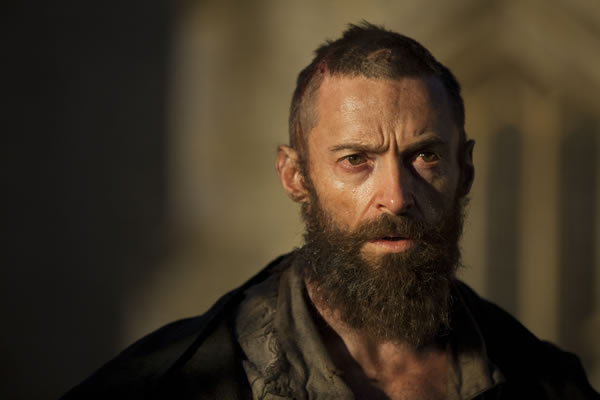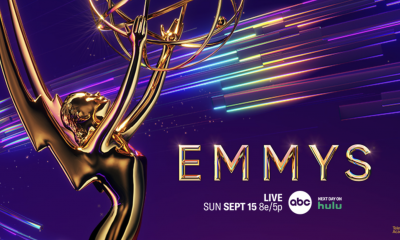Arts & Entertainment
Silver bells, silver screen
Several gay-themed flicks among holiday fare
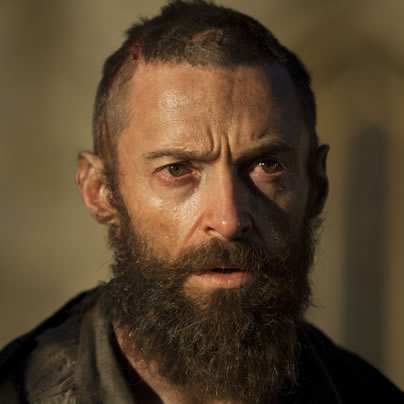
LGBT filmgoers have some interesting mainstream and independent movie choices coming up this holiday season.
Already in theaters (D.C.’s Landmark E Street Cinema among them) is “Any Day Now” starring Alan Cumming and Garret Dillahunt. Set in Los Angeles in 1979, it tells the story of an unconventional family battling internalized and institutional homophobia as an unlikely gay couple tries to adopt a special needs child.
Cumming plays Rudy Donatello, a flamboyant drag queen who yearns to stop lip-synching and perform his own cabaret act. Dillahunt plays Paul Flieger, a shy fan who finally gathers up the nerve to approach the performer after a show. Paul’s a straight-laced closeted assistant district attorney, so the two clearly have some challenges in making their relationship work.
Rudy lives down the hall from a prostitute who has a 14-year-old son, Marco, with Down syndrome. When she’s arrested on drug possession charges, Rudy impulsively and reluctantly decides to care for Marco. Soon, Paul, Rudy and Marco are living together in Rudy’s cramped apartment, although the two men initially pretend to be cousins to avoid public scrutiny. Trouble ensues when the couple decides to adopt Marco and take on a hostile bureaucracy that doesn’t consider gay men appropriate guardians and that routinely places special needs children in institutions.
Rebels of a different sort are on-screen in Walter Salles’ adaptation of Jack Kerouac’s classic Beat novel, “On the Road.” Like the novel, the movie is a thinly veiled recreation of the famous cross-country road trip taken by Kerouac with his friend Neal Cassady and Cassady’s girlfriend LuAnne Henderson. Sam Riley plays Kerouac’s alter ego Sal Paradise and Garrett Hedlund plays the charismatic Dean Moriarty (based on Cassady). Kristen Stewart appears as Moriarty’s girlfriend Marylou and Viggo Mortenson and Tom Sturridge are featured as characters based on William S. Burroughs (author of “Naked Lunch”) and Allen Ginsburg (the openly gay poet who wrote “Howl”).
Reunited with screenwriter Jose Rivera (the two worked together on “The Motorcycle Diaries,” a road movie inspired by the life of Che Guevara), Salles unflinchingly recreates the artistic, philosophical and sexual awakening of Paradise. The film combines a celebration of the Beat writers and the women and gay men who were part of their world along with an understanding of the misogyny and homophobia that ultimately underscored much of their work. The movie includes explicit sex scenes but the focus remains on the sexual liberties taken by the straight white writers.
“On the Road” opens in limited release Dec. 21 and is expected in D.C. theaters in January.
A very different road trip is the subject of “The Guilt Trip,” a holiday release starring the unlikely comic team of gay icon Barbra Streisand and Seth Rogen. Currently in wide release, the movie is based on a real-life from suburban New Jersey-to-Las Vegas trip taken by screenwriter Dan Fogelman (“Tangled” and “Cars”) and his mother.
In the movie, Rogen plays Andy Brewster, an inventor travelling across the country to sell his newest product. Streisand, in her first lead movie role since “The Mirror Has Two Faces” (1996), plays his pushy mother Joyce, who decides to join her reluctant son on his travels. Along the way, mother and son rebuild their strained relationship and Joyce is reunited with a lost love.
It opened this week in wide release.
The blockbuster release of the 2012 holiday season is the much-anticipated “Les Misérables,” the musical adaptation of the classic Victor Hugo novel about a popular uprising against an oppressive regime (the 1832 June Rebellion in Paris) and the transcendent power of love. Directed by Tom Hooper, the musical extravaganza stars Hugh Jackman as Jean Valjean, who serves a brutal 19-year prison sentence for stealing bread to feed his sister’s starving children. Breaking parole and living under an assumed name, Valjean is relentlessly pursued by the ruthless Inspector Javert (Russell Crowe).
The all-star ensemble cast features Anne Hathaway as Fantine, the doomed factory worker; Amanda Seyfried as Cosette, Fantine’s beautiful illegitimate daughter who is raised by Jean Valjean; Eddie Redmayne as Marius, the student who falls instantly in love with Cosette; and Samantha Banks as Éponine, the wily gamine who pines with unrequited love for Marius. The principal cast is rounded out by Aaron Tveit as the leader of the student revolutionaries; Colm Wilkinson (who originated the role of Jean Valjean in London and New York) as the kindly Bishop of Digne; and, Helena Bonham Carter and Sacha Baron Cohen as the Thénardiers, comic denizens of the Parisian underworld.
“Les Miz” makes movie musical history by being the first film musical to be recorded live on the set (performers usually lip-synch to tracks previously laid down in a recording studio). The movie adaptation will also include a new song written specifically for leading man Hugh Jackman. The authors of the English stage musical (Claude-Michel Schönberg, Alain Boublil and Herbert Kretzmer), working with screenwriter William Nicholson, wrote the song “Suddenly” for Jean Valjean to sing after he rescues Cosette from the Thénardiers. The new song clarifies the character’s emotional journey and will be eligible for Oscar consideration.
“Les Misérables” opens nationwide in wide release Tuesday.
Sports
Trans cyclist’s victory sparks outrage in conservative media
Katheryn Phillips is originally from DC

On the heels of UPenn erasing the record of the first openly transgender NCAA Division I All-American swimmer and the U.S. Supreme Court’s decision to tackle bans on trans student-athletes, right wing media is now all hot and bothered about the latest trans woman who won a cycling championship — even though she competed according to the rules.
On Tuesday, 58-year-old Katheryn Phillips finished first in USA Cycling’s Lyons Masters National Championship race for women aged 55-59, with a time of 1:42:10, according to the official results posted by the organization. The record shows her gender as “F” for female.
One second behind Phillips was Julie Peterson, with a time of 1:42:11 — as were three other cyclists: Mary Beth Grier, Andrea Cherniak-Tyson, and Carolyn Maddox.
Peterson, 57, was so outraged, she told Fox News she refused to stand on the podium in second place next to Phillips. Her story was swiftly shared by the New York Post (also owned by Fox’s parent company News Corp.), the Daily Mail, Breitbart, and other conservative media.
Both Peterson and another competitor are accusing USA Cycling of “hiding” that a transgender woman had registered to race.
“It was hidden from us. Katheryn Phillips, KJ’s name, was not on that list. And I checked it up all the way to the point of closure when we couldn’t register online anymore,” Debbie Milne told Fox.
“If I had known, I wouldn’t have spent thousands of dollars in travel and time off work to come and do a race,” Peterson said. Fox welcomed Milne, 56, who finished seventh on Tuesday, to Fox & Friends Thursday morning.
(Video courtesy of Fox News)
Peterson told Fox she did complain to USA Cycling officials prior to the race. Both Milne and Peterson referred to Phillips as a male, and with “he/him” pronouns.
“To be fair to all humans, if we want to say ‘him’ or ‘her,’ he was born a biological male, that is a fact,” Milne said. “And that is the thing that makes it an unfair advantage. Whatever has happened after that is a whole different topic.”
“I said, ‘I don’t want to race against a man,’ and they quickly scolded me and said ‘Oh, you can’t call him a man,’ and I’m like ‘Well, he is a man,’ so I was quickly scolded and corrected that it is a woman and I don’t even know what to say.”
USA Cycling did not respond to the Washington Blade’s emails requesting comment.
Phillips, who goes by Kate and by “KJ,” is a former rugby player with the D.C. Furries, who stated in the comments of a 2024 article published by Zwift Insider that she was the first out trans athlete in the U.S. to compete under the 2004 International Olympic Committee’s guidelines on trans participation.
“When USA Rugby told me about the IOC decision in 2004, I raised my hand to be included. I experience nothing but joy when I play, ride, and race,” Phillips said.
As the Blade has reported, the International Olympic Committee drastically revised those rules in 2021, and in March, Republican lawmakers in D.C. demanded the IOC ban trans female athletes from women’s sporting events altogether.
The Blade also reached out to Phillips for comment but as of press time we have not received a response. She told Zwift Insider in March 2024 she does not let those who disapprove or spread hate impact her performance or her attitude.
“I am unaffected by dissent. I love, I share joy, I am me, and I have been my authentic self for decades,” she said. It’s been reported Phillips came out in 1999, and told Zwift Insider she considers herself a lifelong cyclist.
“I’ve been on a bike for as long as I can remember,” said Phillips. “As kids, my friends and I rode all over town, we were feral kids; no cell phones, no trackers … we just roamed, and nobody got in trouble or hurt bad enough not to ride home … Scrapes/bruises/cuts were not an issue for us. In my teens, I worked for myself as a court/legal messenger, doing all of the work via my bike until I got a car. Raced BMX as a kiddo (when I mowed lawns to cover the race entry fees), I did MTB stuff (non-racing) and Sprint/Olympic Triathlons in my 30’s, and now I’m racing on Zwift, Road/Gravel, and CX in my 50s.”
In the comments section, Phillips made clear she’s not competing to win.
“I don’t do sports for victory, I do it because like many other women, I am an athlete to my core,” she said. “Unlike some, I am not there to WIN, I am there to do my best with the competitors and teammates I have around me trying to do the same…we are in it for the experience. I rejoice in their wins, and a lot of joy is reflected back to me when I have a good day.”
Celebrity News
Nina West’s ‘Sugar in the Tank’ tour comes to Rehoboth Beach
Drag Race’ contestant will be at Clear Space Theater Company on July 6
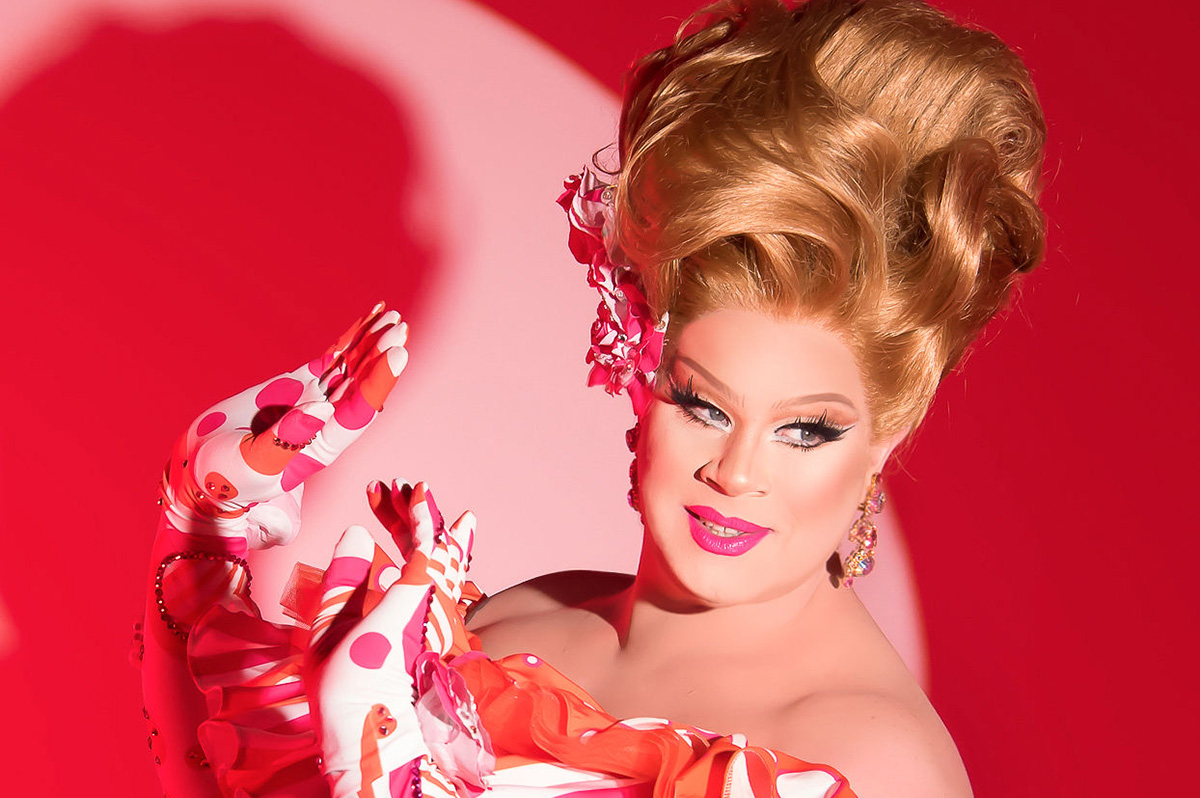
Nina West, a drag queen known for competing on “RuPaul’s Drag Race,” is currently on her ‘Sugar in the Tank’ tour around U.S. cities.
With previous shows in Key West, Fla., New York, and hometown of Columbus, Ohio, the tour is staying put in Provincetown, Mass., from late July to early September. It will make a stop at Clear Space Theater Company in Rehoboth Beach, Del., as part of a summer cabaret series on July 6.
Andrew Levitt has been performing as Nina West for 25 years, who got her rise from starring in “Drag Race” Season 11, where she placed sixth and won Miss Congeniality, a title awarded to the contestant who is regarded as the kindest and most helpful one of that season.
West has toured “Hairspray” on Broadway as Edna Turnblad, starred in a couple of feature films and published a children’s book titled ‘The You Kind of Kind.’
Levitt said he wrote this show in response to attacks from the government towards the LGBTQ community.
“‘Sugar in the Tank’ is a big old gay fabulous summer musical,” Levitt told the Washington Blade. “The show is a response to the darkness that I think has fallen over a lot of people in the country and it’s hopefully trying to bring a little bit of light and a little bit of joy.”
“Sugar in the Tank” is a Southern euphemism for gay, often holding a negative connotation. Levitt said he wanted to “reclaim and embrace” queerness in times when some people want to take that away.
Levitt said he knew he would be traveling to predominantly queer destinations like Key West and Provincetown for these shows and that was always at the forefront of his mind when writing “Sugar in the Tank.”
This will be Levitt’s first time in Rehoboth Beach. Clear Space Theater is considered Delaware’s second-largest professional non-profit theater and the state’s most prolific producer of professional theater. The space seats just 170 patrons and Levitt said he loves the intimacy of a small venue and that it’s his favorite way to do a show.
“Stages like this size are the perfect size for me because it allows for me to really showcase my talents,” Levitt said.
Levitt founded the Nina West Foundation in 2015 to uplift and sustain the central Ohio LGBTQ community, which has raised more than $3 million for various organizations. He said he makes activism part of the entertainment in his career.
“That’s the nuance of what drag is. We can be ridiculous for fun and we can be serious but it’s all wrapped up into one thing,” Levitt said. “I think that can be the power of it.”
Levitt said West is so much more confident now than when he first started performing as her. He didn’t know where his voice belonged in the community in the past, but because of those who came before him in this art form, he has learned to harness the power of the stage and the power of the wig to be able to tell stories.
“I really love my community. I love queer people. I love who we are and what we represent,” Levitt said. “Knowing our history and knowing that we’ve been through a lot, I’m really thrilled that as a queen, I can use my voice and my platform to help try to better our community, not try to speak for everyone but try to lend voice to people who desperately need it.”
Levitt’s advice to young queer artists is to not give up on yourself, surround yourself with supportive people and allow yourself the opportunity and space to fail, to ask questions, and to not give up.
“Our young people have got to be told they matter,” Levitt said. “Oftentimes, people are told that they don’t matter, that their voice doesn’t matter, that they cannot make a difference and I want to remind every single person who’s doing this that they do matter, they can make a difference, their voice is intrinsic to who we are as a community.”
If Sugar in the Tank was a drink, it would be a Bahama Mama or Sex on the Beach, said Levitt, because they are delicious, juicy, and sugary, just like the show.
“I just want everyone to know that they should come to ‘Sugar in the Tank’ and experience a show that’s built on joy and levity and silliness and fun and come have some fun with me and show me the fabulous love of Rehoboth Beach,” Levitt said. “I can’t wait.”
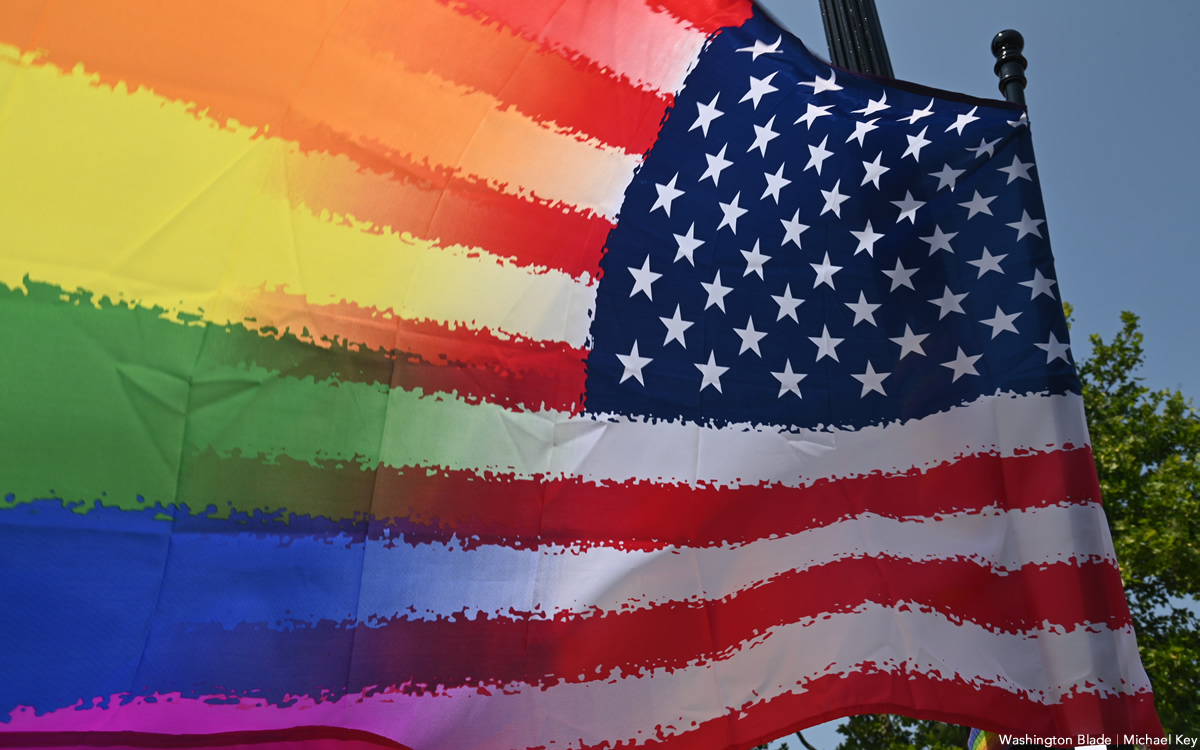
The Rainbow History Project will host “Pickets, Protests and Parade Exhibit Tour” at 7 p.m. at Freedom Plaza. This event honors the courage, resilience and resistance of D.C.’s gay community. For more details, visit Eventbrite.
Go Gay DC will host “LGBTQ Community Social” at 7 p.m. at Hyatt Centric Arlington (1325 Wilson Blvd.). This fun event is ideal for meeting new people and community building. Attendance is free and more details are available on Eventbrite.
Xavier Entertainment DC will host “Cowboy Carter Afterparty” at 10 p.m. at Nellie’s Sports Bar. There will be fireworks, parades, and patriotic fun. For more details, visit Eventbrite.
Mezcal Amaras will host “Sha Boing Boing Showdown” at 6 p.m. at Snappy’s Small Bar (3917 Georgia Ave., N.W.). Get ready to test your hotdog eating abilities. Tickets start at $12.51 and can be purchased on Eventbrite.
Illusions Drag Queen Show will host “Drag Queen Dinner Show” at 7 p.m. at 2323 18th St. N.W. Guests will be treated to the very best celebrity drag impersonations in entertainment. Tickets start at $12.97 and are available on Eventbrite.
Thurst Lounge will host “A Thirsty Cowboy Afterparty” at 5 p.m. DJ Apollo will be performing. For more details, visit Thurst’s website.
9:30 Club will host “Gimme Gimme Disco: A Dance Party Inspired by ABBA” at 9 p.m. The DJ will play plenty of disco hits from the 70s and 80s. Tickets cost $45.30 and can be purchased on Ticketmaster.

